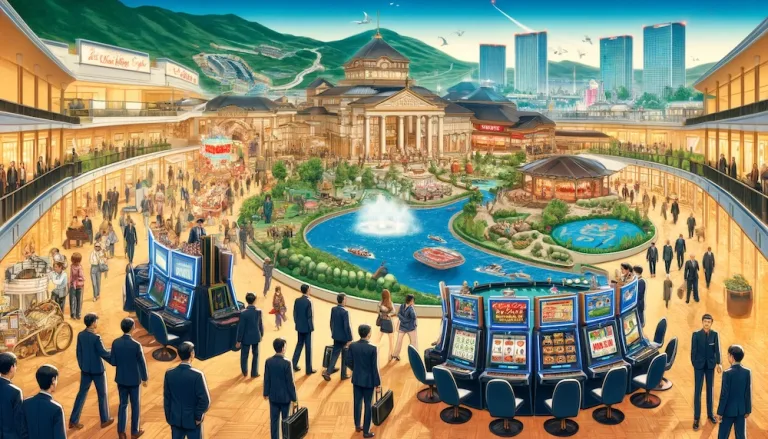On April 20, 2024, Japan marked a significant milestone with the opening of new integrated resorts (IRs) that include casinos. These developments are set to boost tourism, create job opportunities, and stimulate the economy. This article explores the impact of Japan’s integrated resort expansion, highlighting the benefits, challenges, and future prospects of these new casino openings.
Key Developments in Japan’s Integrated Resort Expansion
New Casino Openings
The most notable development is the opening of new casinos within integrated resorts in major cities like Osaka and Yokohama. These casinos are part of larger entertainment complexes that include hotels, shopping centers, convention facilities, and theme parks. The grand opening on April 20, 2024, attracted significant attention from both local and international media, signaling Japan’s entry into the global casino market.
Government Support and Regulation
The Japanese government has played a crucial role in supporting the integrated resort expansion. Strict regulations have been put in place to ensure responsible gambling and protect local communities. The government has also provided incentives to attract foreign investment and promote the development of high-quality tourism infrastructure.
Benefits of Japan’s Integrated Resort Expansion
Boost to Tourism
The new integrated resorts are expected to attract a significant number of international visitors. With world-class entertainment, dining, and shopping options, these resorts offer a unique experience that appeals to a broad range of tourists. The influx of visitors will boost Japan’s tourism industry, contributing to the country’s goal of attracting 60 million tourists annually by 2030.
Economic Growth and Job Creation
The integrated resort expansion is set to stimulate economic growth by creating thousands of jobs in various sectors, including construction, hospitality, and entertainment. The economic benefits extend beyond the immediate vicinity of the resorts, as increased tourism spending will boost local businesses and generate additional tax revenue for the government.
Enhanced Infrastructure
The development of integrated resorts has led to significant investments in infrastructure. Improved transportation networks, including new train lines and enhanced airport facilities, will make it easier for tourists to access these resorts. Additionally, the construction of new hotels and entertainment venues will further enhance Japan’s appeal as a top tourist destination.
Challenges Faced by Japan’s Integrated Resort Expansion
Ensuring Responsible Gambling
One of the primary challenges is ensuring responsible gambling and mitigating the potential negative effects of casino gaming. The Japanese government has implemented strict regulations, including entry fees for locals, self-exclusion programs, and limits on the frequency of casino visits. These measures aim to protect vulnerable individuals and prevent gambling addiction.
Competition from Regional Markets
Japan’s integrated resorts will face competition from established casino markets in the region, such as Macau and Singapore. To remain competitive, Japan must differentiate its offerings by providing unique experiences and maintaining high standards of service. Continuous innovation and investment in new attractions will be crucial for sustaining long-term success.
Balancing Development and Local Impact
The rapid development of integrated resorts must be balanced with the needs and concerns of local communities. Ensuring that development projects do not negatively impact the environment or local culture is essential. Engaging with community stakeholders and implementing sustainable practices will help address these concerns and promote positive relationships.
Future Prospects for Japan’s Casino Industry
Expansion of Integrated Resorts
The success of the initial integrated resorts may lead to further expansion in other regions of Japan. Cities like Nagasaki and Hokkaido have expressed interest in hosting their own integrated resorts. Expanding the number of resorts will distribute economic benefits more evenly across the country and attract a wider range of tourists.
Technological Innovations
The future of Japan’s casino industry will likely see the adoption of technological innovations to enhance the guest experience. Technologies such as artificial intelligence (AI), augmented reality (AR), and virtual reality (VR) can provide personalized and immersive gaming experiences. These innovations will help Japan’s casinos stay competitive and attract tech-savvy tourists.
Collaboration with Global Brands
Collaborating with global hospitality and entertainment brands can enhance the appeal of Japan’s integrated resorts. Partnerships with well-known international brands can bring additional expertise, attract a global clientele, and provide unique experiences that differentiate Japan’s resorts from competitors. These collaborations can drive further growth and innovation in the industry.
Conclusion
Japan’s integrated resort expansion, marked by the opening of new casinos on April 20, 2024, is set to boost tourism, create job opportunities, and stimulate economic growth. While there are challenges to address, the benefits of increased tourism, enhanced infrastructure, and economic development are substantial. As Japan continues to innovate and expand its integrated resorts, the future of its casino industry looks promising. Whether you are a tourist seeking a world-class entertainment experience or an industry stakeholder, Japan’s integrated resort expansion offers a compelling glimpse into the future of global tourism and gaming.

David Garato is a luminary in gaming journalism, renowned for peeling back the curtain on the gaming world with his witty and insightful commentary. A decade into weaving stories from the pixelated edges of indie games to the expansive universes of AAA titles, David’s work is a thrilling blend of analysis and adventure. When not writing, he’s live-streaming, sharing his gaming exploits with an engaged and growing audience. David doesn’t just write about games; he lives them, making him a trusted guide in the gaming community.


